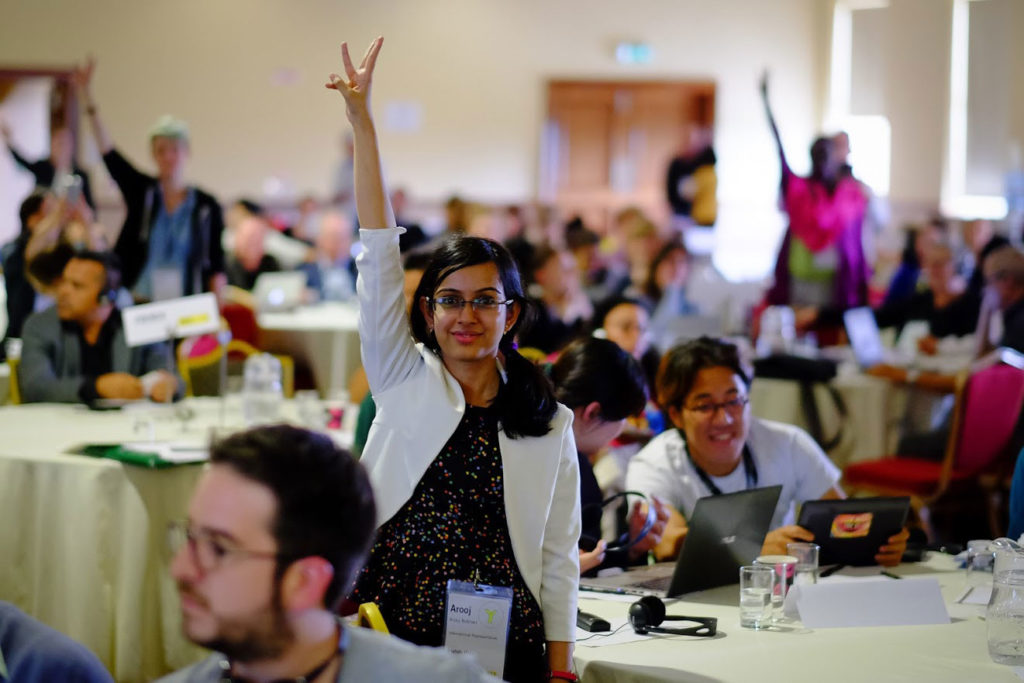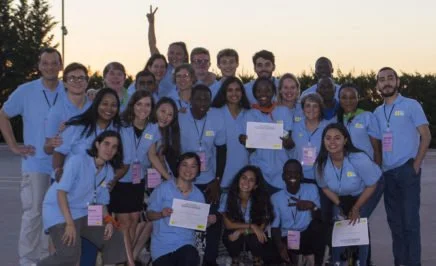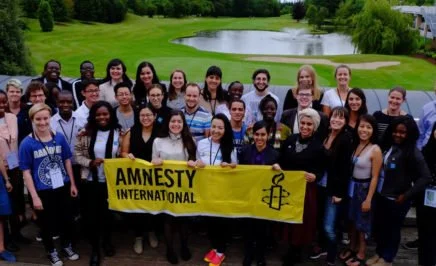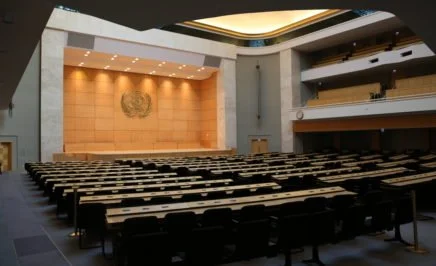By Gabe Kavanagh, President, Amnesty International Australia

Later this month I’ll have the privilege of travelling to Amnesty’s International Council Meeting (ICM) in Rome, Italy.
At the ICM, held every two years, representatives from most of the 150 Amnesty offices around the world come together in one place. We’ll be meeting to look to the future and make sure that, all around the globe, we’re doing our very best to address human rights abuses.
The Australian delegation will be made up of myself, the National Director Claire Mallinson, Board member Katerina Barbour, SA/NT Vice President Sarah Burrage, Board member James Milsom, and youth delegate Sarah Swan.
We come together at the ICM to take decisions that enable us to be the most effective human rights movement we can be. The 2017 ICM will have a major focus on global governance reform. Together we are working towards a model of governance that enables us to be responsive, flexible, and truly member-led.
This year resolutions address matters as diverse as the human rights impact of climate change; intersex people’s rights; opposing military occupation; drug control policies and human rights; and the rights of people with disabilities.
There is also a resolution to review Amnesty’s existing policy around abortion, enabling Amnesty to campaign for full realisation of sexual and reproductive rights.
This year resolutions address matters as diverse as the human rights impact of climate change; intersex people’s rights; opposing military occupation; drug control policies and human rights; and the rights of people with disabilities.

In 2007 Amnesty adopted a policy on ‘Select Aspects of Abortion’ that enabled us to call for States to repeal laws criminalising abortion, and to take all necessary measures to ensure that safe and legal abortion is available to girls and women falling pregnant as a result of rape, sexual assault or incest, or if the pregnancy poses a risk of the life or grave risk to the health of the woman (referred to as ‘minimum grounds’).
The resolution at this year’s ICM reflects changes, in the intervening 10 years, to International human rights standards. It also reflects evidence from the UN and AI’s own research that laws permitting abortion only on ‘minimum grounds’ do not ensure actual access to abortion even for women qualifying on those grounds.
In light of these developments, this resolution proposes a review of AI’s current policy in the area, in particular the ‘minimum grounds’ limitation.
Another resolution proposes further research into our current policy on sex workers’ rights, an evidence-based policy that was decided on at the 2015 ICM. This resolution proposes that Amnesty conducts comparative studies between countries that have decriminalised sex work and those that are prohibitionist and abolitionist. While we welcome ongoing discussion of complex human rights issues, the Australian section is clear in its support of decriminalisation of sex work. Two years of research and consultation around the world found decriminalisation is the most effective way to protect sex workers’ rights and safety.
There are many perspectives amongst our movement about the topic of abortion, and the topic of sex work. This wide range of views and evidence were considered in the extensive consultation processes leading up to the adoption of the current policies around sex work, and before that, around abortion.
Abortion is illegal in Ireland unless the mother’s life is at stake. This meant that Nicola, despite her distress, had to wait five more weeks until her unborn child finally died inside her, before she was allowed to end her pregnancy.
While these may be difficult issues for some people, Amnesty has always been brave and bold in taking on important issues. I know there is more that unites us in our movement than divides us.

We are united by the story of Nicola in Ireland, who was 19 weeks pregnant when she was told by doctors her baby had a fatal impairment with no chance of survival. Abortion is illegal in Ireland unless the mother’s life is at stake. This meant that Nicola, despite her distress, had to wait five more weeks until her unborn child finally died inside her, before she was allowed to end her pregnancy. Following her induction and delivery, Nicola developed an infection due to a retained placenta, which required further hospitalisation and care. No woman should have to endure such anguish and indignity.
The positions our delegation will take on all of these issues are informed by the recent consultation process on the ICM resolutions. These positions were brought to the National Board in July and were presented at the National Annual General Meeting. If you would like further information on any of these issues, please contact myself, or James Milsom, AIA Board member and Chair of the International Issues Committee, at james.milsom@amnesty.org.au. A full report of the ICM will be provided at a later date.
I look forward to sharing with you the outcomes from this important ICM. However, whatever comes out of these resolutions, Amnesty Australia’s 2020 vision and priority campaigns will remain the same.
Lastly, this ICM will mark the end of a four-year term as Chair of the International Board for Nicole Bieske, who was formerly the President of the Australian section — and I’d like to take this opportunity to thank Nicole for her work.




